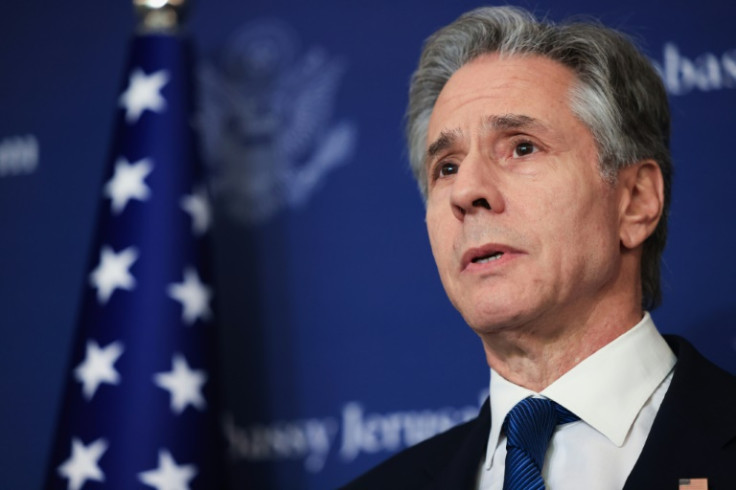
Secretary of State Antony Blinken is visiting Haiti on Thursday as a show of support for the country's leadership, currently struggling in the political and security fronts despite repeated attempts at stabilization.
"This is a crucial moment in Haiti," said Brian Nichols, assistant secretary of state for Western Hemisphere affairs ahead of the visit. "We're seeing that forward movement on the security side that we've long waited for. But we also need to see progress on the political side, and Haiti's political parties are a priority for the secretary to make sure that progress toward elections moves forward."
Even though Haiti's long-opposing political parties managed to form a transitional council and appoint a prime minister, Garry Conille, the country's political leadership has failed to make more substantial progress.
In fact, Conille warned last month that the country is unlikely to meet the February 2026 deadline for electing a new president. He said it would be "extremely difficult" to do so without urgent international support, especially in humanitarian aid and funds for the security mission.
Conille recently requested an assessment mission to identify gaps in the electoral process during a meeting with international partners. The Biden administration has been advocating for clear steps toward elections since the arrival of Kenyan police officers tasked with helping their local counterparts fight off criminal gangs, but the mission still faces challenges, including insufficient manpower, funding, and equipment.
The ongoing struggle has led the Biden administration to consider turning the mission into a traditional United Nations (UN) peacekeeping operation.
The possibility, reported on Wednesday by the Miami Herald, comes about two months after the first group of Kenyan police officers arrived in Haiti to spearhead the security force. There have been challenges in securing voluntary contributions for the mission, which costs approximately $200 million every six months to operate, as well as showing any results for it.
The potential switch would address funding shortfalls, as such missions are typically financed through member nations' assessed contributions. Additionally, it would provide the mission with better resources, such as helicopters and medical facilities, which the current Kenya-led mission lacks. And allow for the deployment of military forces from other nations, an area where the U.S. has struggled to gain support under the current framework.
The Kenyan mission currently includes 400 police officers, with an additional 250 military and police officers from Jamaica expected to arrive soon. However, critics argue that even the initially projected 2,500 personnel would be insufficient to make a significant impact.
Haitian government officials have also expressed concerns about the mission's effectiveness, particularly regarding equipment shortages and the lack of security personnel to safeguard upcoming elections. Gangs controlling 80% of the capital, Port-au-Prince are reportedly undeterred by current forces. The mission is up for renewal by the UN Security Council on September 30.
© 2024 Latin Times. All rights reserved. Do not reproduce without permission.









